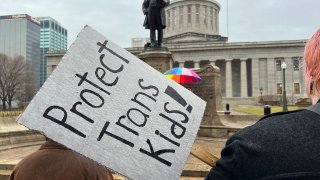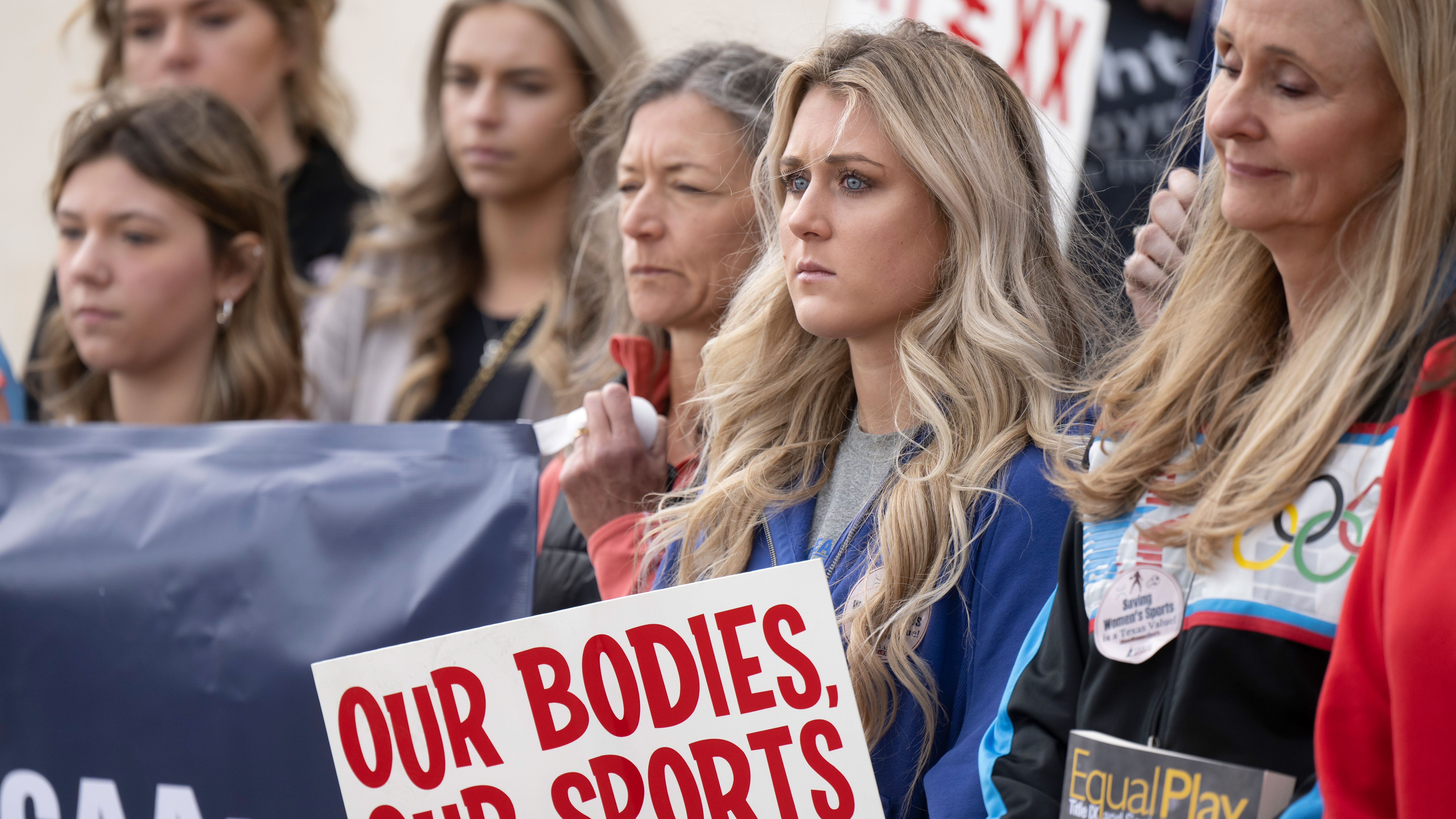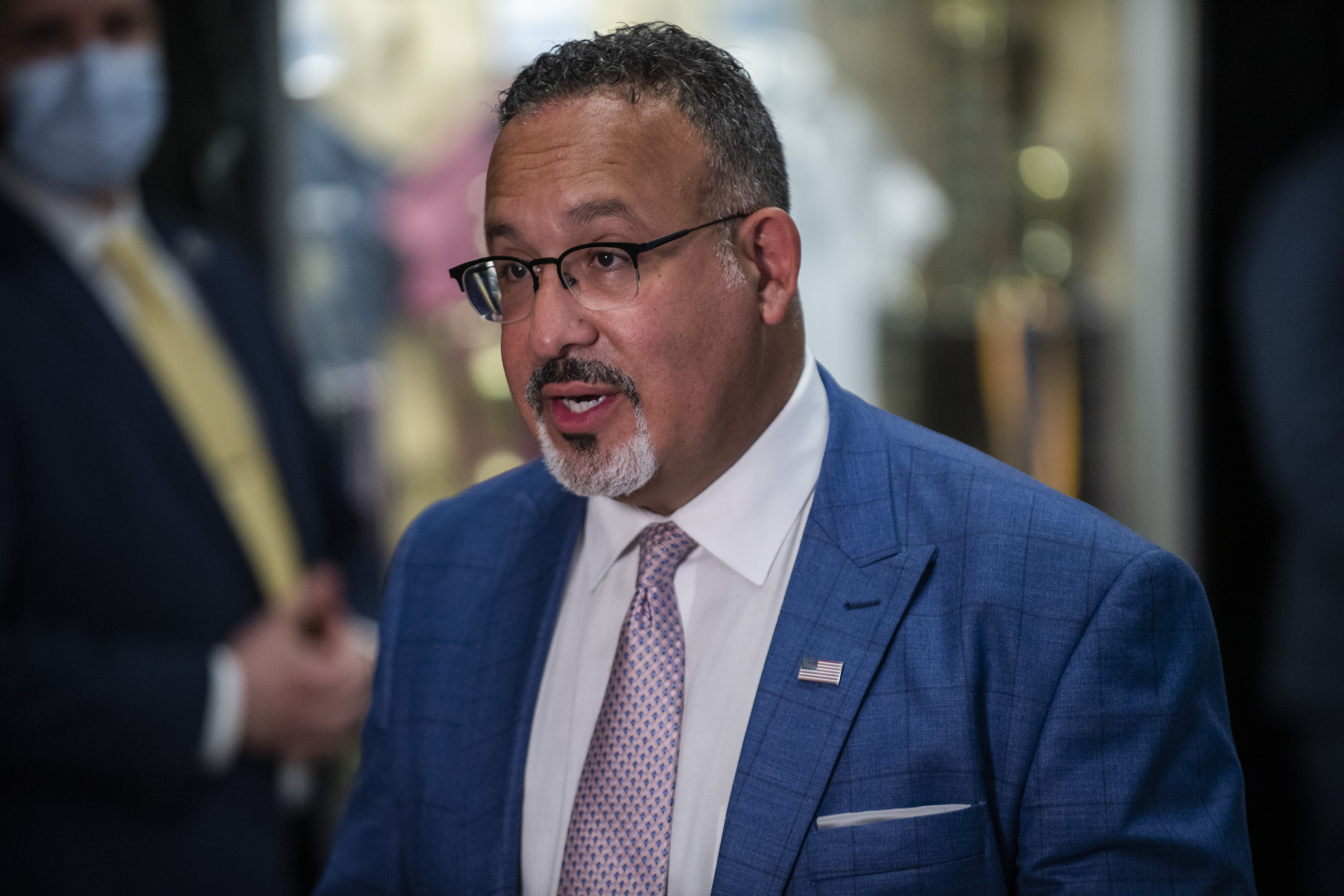
The rights of LGBTQ+ students will be protected by federal law and victims of campus sexual assault will gain new safeguards under rules finalized Friday by the Biden administration.
The new provisions are part of a revised Title IX regulation issued by the Education Department, fulfilling a campaign pledge by President Joe Biden. He had promised to dismantle rules created by former Education Secretary Betsy DeVos, who added new protections for students accused of sexual misconduct.
Notably absent from Biden’s policy, however, is any mention of transgender athletes.
The administration originally planned to include a new policy forbidding schools from enacting outright bans on transgender athletes, but that provision was put on hold. The delay is widely seen as a political maneuver during an election year in which Republicans have rallied around bans on transgender athletes in girls' sports.
Get top local stories in San Diego delivered to you every morning. >Sign up for NBC San Diego's News Headlines newsletter.
Instead, Biden is officially undoing sexual assault rules put in place by his predecessor and current election-year opponent, former President Donald Trump. The final policy drew praise from victims' advocates, while Republicans said it erodes the rights of accused students.
The new rule makes “crystal clear that everyone can access schools that are safe, welcoming and that respect their rights," Education Secretary Miguel Cardona said.
“No one should face bullying or discrimination just because of who they are, who they love,” Cardona told reporters. “Sadly, this happens all too often.”
Biden's regulation is meant to clarify schools’ obligations under Title IX, the 1972 women’s rights law that outlaws discrimination based on sex in education. It applies to colleges and elementary and high schools that receive federal money. The update is to take effect in August.
Among the biggest changes is new recognition that Title IX protects LGBTQ+ students — a source of deep conflict with Republicans.
The 1972 law doesn’t directly address the issue, but the new rules clarify that Title IX also forbids discrimination based on sexual orientation or gender identity. LGBTQ+ students who face discrimination will be entitled to a response from their school under Title IX, and those failed by their schools can seek recourse from the federal government.
Many Republicans say Congress never intended such protections under Title IX. A federal judge previously blocked Biden administration guidance to the same effect after 20 Republican-led states challenged the policy.
Rep. Virginia Foxx, a Republican from North Carolina and chair of the House Education and the Workforce Committee, said the new regulation threatens decades of advancement for women and girls.
“This final rule dumps kerosene on the already raging fire that is Democrats’ contemptuous culture war that aims to radically redefine sex and gender,” Foxx said in a statement.
The revision was proposed nearly two years ago but has been slowed by a comment period that drew 240,000 responses, a record for the Education Department.
Many of the changes are meant to ensure that schools and colleges respond to complaints of sexual misconduct. In general, the rules widen the type of misconduct that institutions are required to address, and it grants more protections to students who bring accusations.
Chief among the changes is a wider definition of sexual harassment. Schools now must address any unwelcome sex-based conduct that is so “severe or pervasive” that it limits a student's equal access to an education.
Under the DeVos rules, conduct had to be “severe, pervasive and objectively offensive," a higher bar that pushed some types of misconduct outside the purview of Title IX.
Colleges will no longer be required to hold live hearings to allow students to cross-examine one another through representatives — a signature provision from the DeVos rules.
Live hearings are allowed under the Biden rules, but they're optional and carry new limits. Students must be able to participate from hearings remotely, for example, and schools must bar questions that are “unclear or harassing.”
As an alternative to live hearings, college officials can interview students separately, allowing each student to suggest questions and get a recording of the responses.
Those hearings were a major point of contention with victims' advocates, who said it forced sexual assault survivors to face their attackers and discouraged people from reporting assaults. Supporters said it gave accused students a fair process to question their accusers, arguing that universities had become too quick to rule against accused students.
Victims' advocates applauded the changes and urged colleges to implement them quickly.
“After years of pressure from students and survivors of sexual violence, the Biden Administration’s Title IX update will make schools safer and more accessible for young people, many of whom experienced irreparable harm while they fought for protection and support,” said Emma Grasso Levine, a senior manager at the group Know Your IX.
Despite the focus on safeguards for victims, the new rules preserve certain protections for accused students.
All students must have equal access to present evidence and witnesses under the new policy, and all students must have equal access to evidence. All students will be allowed to bring an advisor to campus hearings, and colleges must have an appeals process.
In general, accused students won't be able to be disciplined until after they're found responsible for misconduct, although the regulation allows for “emergency” removals if it's deemed a matter of campus safety.
The latest overhaul continues a back-and-forth political battle as presidential administrations repeatedly rewrite the rules around campus sexual misconduct.
The Foundation for Individual Rights and Expression criticized the changes as a rollback of due process protections for accused students.
“Rather than playing political ping-pong with student rights, the Department of Education should recognize that removing procedural protections for students is the exact opposite of fairness,” FIRE Legal Director Will Creeley said in a statement.
The DeVos rules were themselves an overhaul of an Obama-era policy that was intended to force colleges to take accusations of campus sexual assault more seriously. Now, after years of nearly constant changes, some colleges have been pushing for a political middle ground to end the whiplash.
Associated Press writer Annie Ma contributed to this report.



